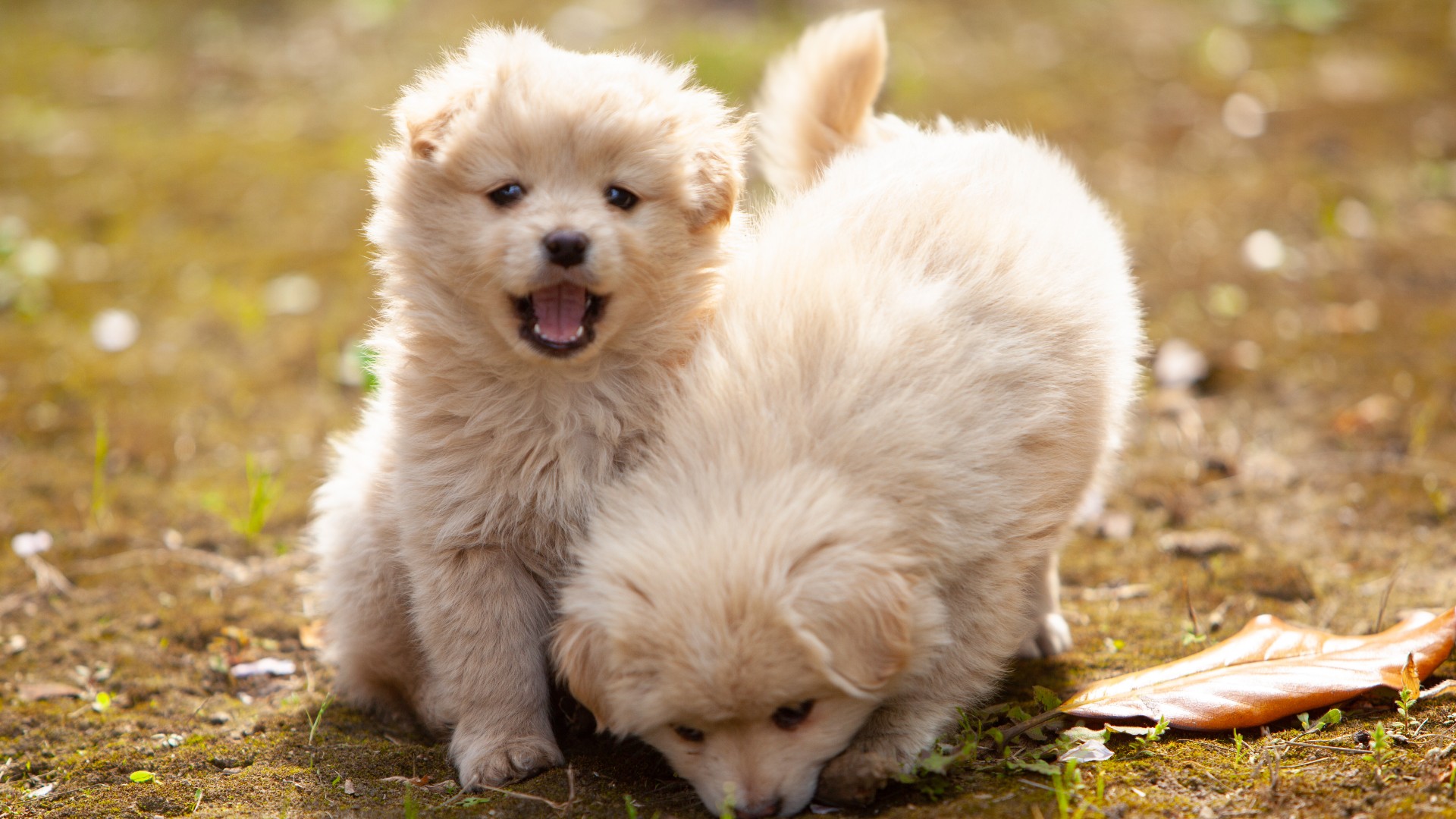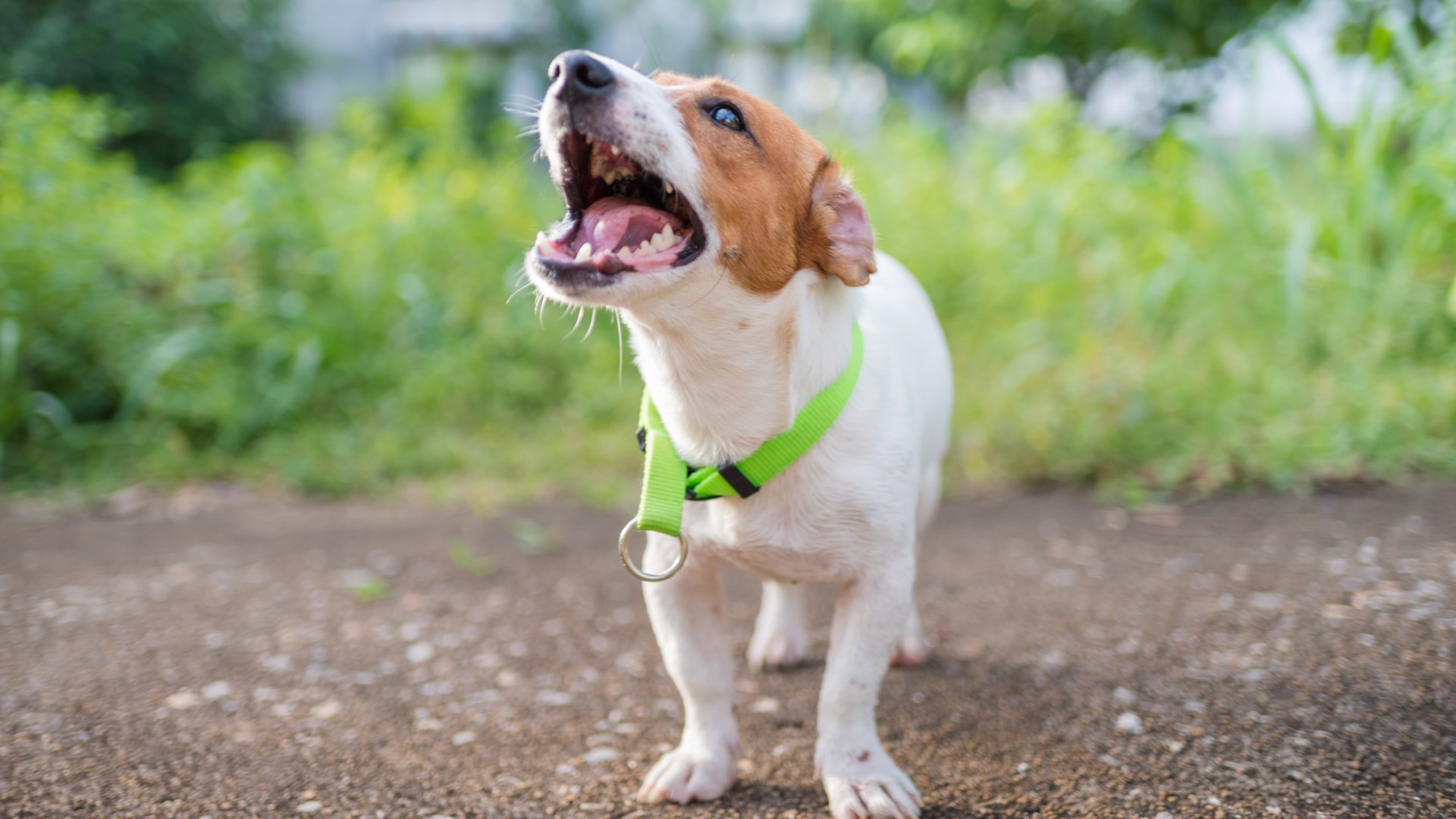How to stop a puppy barking
Here's how to stop a puppy from barking at night, during the day, and more

Knowing how to stop a puppy from barking is an essential skill for any dog owner.
Puppies need consistent training at a young age so that they grew up to be well-behaved adult dogs, and there's only so much that the best puppy toys can do (although they do help). If you're a new dog owner it's important to learn how to discipline a puppy in a safe and effective way.
Puppy barks can be cute at first, but after a few hours of high-pitched yelps it becomes a lot less cute. You'll want to figure out why your puppy is barking (there are several reasons) and be proactive in making sure they learn that barking isn't okay.
AS they grow up, those barks will get deeper and louder, so helping them unlearn the habit is imperative if you want a peaceful household and a well-behaved and socialized dog.
We'll help you get to the bottom of why your puppy is barking and how to stop your puppy from barking right here, so put down those noise-canceling headphones and scroll down.
Why does my puppy bark so much?
If you're bringing home a puppy for the first time, you may not be aware of why your puppy barks in the first place. There are lots of reasons why your dog won't stop barking, here are some of them:
- Play barking - Puppies (and dogs) sometimes bark when the play, and it's usually just a little bit of pent-up excitement escaping their mouths. In some cases, however, a puppy may bark during play to warn another dog of their behavior or let them know they're in pain.
- Demand barking - Your puppy might learn rather quickly that if they bark, they'll get what they want - if you feed into this theory. If your puppy barks and you give it a treat, they'll think that barking = treat. Same with pets, meals, play, or anything else a puppy may want.
- Your other dogs bark - If you have older dogs in the house that barks, say, when the mail carrier arrives, your puppy might learn this behavior from an older dog.
- Something scared them - According to VetStreet.com, during a puppy's socialization period (when they're about 6-12 weeks old), they "may bark at anything unfamiliar, including people and noises." This can happy again at about four to six months of age, and may stop as they get more comfortable in their surroundings.
- Boredom - Puppies have a lot of energy, and may bark if they're bored.
- Frustration - Your puppy might bark when a toy is out of reach, or if they can't get somewhere they're trying to.
- Separation anxiety- Crate-training your puppy may be a time when you notice an increase in barking. As your puppy gets used to you and gets used to being left alone, they may start to bark out of separation anxiety.
- Medical issue - Your puppy may have something going on medical that is causing them to bark. If you've addressed other possible causes, you may want to visit your vet to be sure.
How do you stop nuisance barking?
If you've figured out why your puppy is barking and addressed the issue and believe your puppy is barking excessively for no clear reason, there's a lot that can be done to reduce it, as it's impossible to stop your dog from barking altogether.
Get the best advice, tips and top tech for your beloved Pets
While training your puppy, make sure to be consistent with rules, positive reinforcement, and how you respond to your puppy acting out. Don't ever harshly discipline your puppy (or any dog), as that will do nothing but traumatize and potentially injure them.
Make sure your puppy gets plenty of exercise and enrichment to avoid boredom and create and maintain a consistent schedule for meals, play time, and walks. This will help get your puppy used to a routine and hopefully avoid them barking out of boredom. If your puppy barks at sounds or visuals outside your house, you may want to consider a white noise machine or blocking their view from the window.

Can you train a puppy to not bark?
You can't train a puppy to not bark entirely - after all it's a way for dogs to communicate. However, you can help to eliminate nuisance barking and help teach your puppy that barking won't get them what they want. Here are some tips.
- Try door drills - If your puppy is barking in response to the doorbell or someone showing up at your door, try door drills. Try and teach your dog to associate knocks and bell rings with positivity by giving a bunch of treats to a "visitor" and having them knock on the door and give your puppy tons of treats.
- Reward not barking - Let's say your puppy is on a barking tear, and just doesn't seem to want to stop. They will stop, and every time they do, give them a treat. They should start to associate not barking with treats.
- Ignore it - This doesn't always work, but it could. Consistently annoying your puppy's demand barks may teach them that barking just won't cut it.
- Teach "speak" and "quiet" - Teaching your dog a barking and quiet cue may help reduce barking. When your puppy barks, respond by saying "speak" and when they stop, say "quiet." Reward with a treat or praise them after the quiet, and see if they can stay quiet for longer periods of time in between barks.
- Teach a different behavior - You can try to teach puppy a move like "sit" so that everytime they bark you can distract them with sitting and rewarding.
- Don't bark back - This may seem obvious, but sometimes owners just can't help it and bark back at a barking puppy. Barking back or even using a loud voice won't help, so try to keep your voice and your demeanor calm.
- Get a trainer - If all else fails, reach out to a behaviorist and see if you can get at trainer for your furbaby.
Puppies bark just like babies cry - it's a matter of fact. What you can do as an owner is reduce the amount that they bark by ensuring their needs are met, they have enriching days, they expect a consistent schedule, and more.
Always remember to stay calm and don't get emotional in the face of puppy barks, and know that your puppy is learning how to be a grown-up dog in a big, often scary world.
If you’re feeling a little overwhelmed since bringing home your pup, our feature on the puppy blues can help. You might also want to learn how to stop a puppy chewing.
